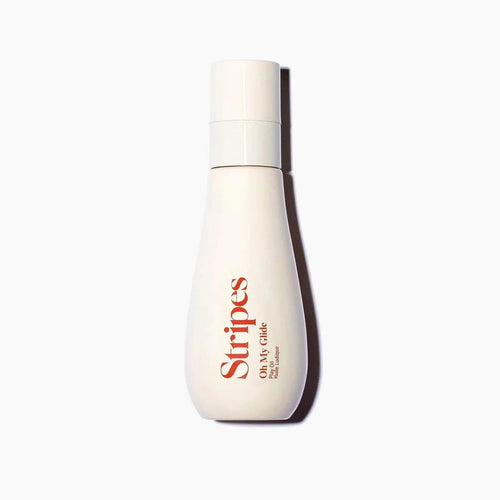“Perimenopause can feel like an extreme exaggeration of PMS symptoms,” says Lauren Streicher, M.D., founder and director of the Northwestern Medicine Center for Menopause and the Northwestern Medicine Center for Sexual Health, and host of “Dr. Streicher’s Inside Information: THE Menopause Podcast.”
The hormone fluctuations that plague us during our menstrual years are the same ones that can cause perimenopausal mayhem: weight gain, fluid retention, and, yes, sensitive breasts.
What causes breast tenderness during menopause?
What are breasts made of anyway? In short, breast tissue is composed of three types of tissue: glandular, fibrous and fat. Glandular tissue is what’s responsible for producing and transporting milk during lactation, while fibrous connective tissue holds the system together. Fat extends from below the surface of the skin.It’s the fibrous tissue that we look at when it comes to tender breasts, especially around our periods. Often, the timing of our breast pain is cycle-dependent.
Breast pain, otherwise known as mastalgia, can cause your breasts to feel sore, inflamed, and tender. It can occur in both breasts or just one. And once again, you can blame it on hormones.
These fluctuations occur during perimenopause and can grow more intense the closer we get to menopause. Your body may be producing more estrogen than progesterone, and this imbalance can cause breast tissue to swell and feel sore.
When it comes to keeping an eye on your breasts for changes, don’t give yourself self-exams, schedule a mammogram before your period, recommends Lizellen La Follette, board certified OB-GYN. Do it in the first half of your cycle to avoid a potentially painful exam.
The good news is that once you hit menopause and your hormones stop fluctuating, the pain will likely diminish or cease altogether.
How can I get some relief from breast pain?
There are a few things you can do to relieve painful breasts during perimenopause and menopause.Get a better bra: Give your lingerie drawer an upgrade and dump your tired old bras, especially if they don’t fit anymore. If a bra digs in or has poky underwires, toss it. Check out bras that are softer or wire-free (even a sports bra will work), especially if you’re just hanging out at home.
Add some heat: If breast pain is keeping you awake at night, treating them with a hot water bottle or a heating pad can be soothing.
Try ibuprofen or NSAIDs: For intermittent pain, Advil or Motrin can provide relief. You can also use ibuprofen cream, which is available over the counter.
Limit your caffeine, chocolate, and salt intake: See if cutting back on your coffee, tea, or sodium helps reduce soreness.
When to worry about breast pain after menopause
When we experience issues with our breasts, our first reaction is to worry that it’s breast cancer. Pain isn’t a usual indicator of a tumor, but if you’re concerned or the pain feels different from what you’ve been experiencing, you should mention it to your doctor.Keep track of the pain: It’s a good idea to understand if there’s a pattern to your breast pain. Does it come and go? Is it more intense at certain times of the month? Is it persistent? This can help you understand what you’re dealing with.
Find out if you should schedule your first mammogram: Your doctor can assess your medical history and offer insight into when you should start, if you haven’t already. Your doctor may want to schedule a scan to determine whether the pain is being caused by a cyst, which can become enlarged due to hormone fluctuations.





